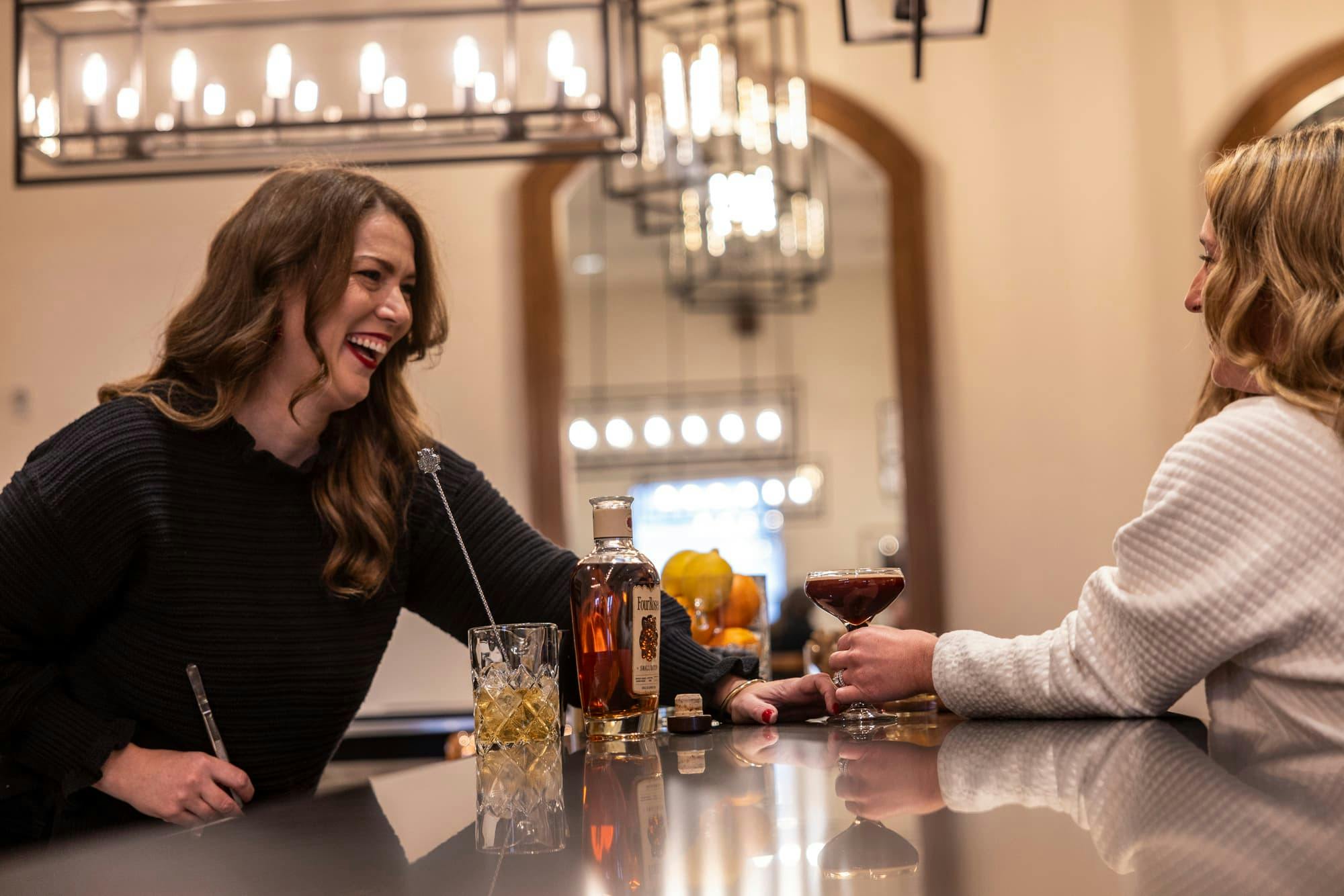1 obsv
delicate fruit and rye
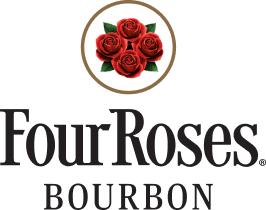
Our Process

Only Four Roses combines two mash bills with five proprietary yeast strains to create ten distinct bourbon recipes. Each recipe brings something different to the batch – and carefully mingling them allows us to achieve an endless range of flavor profiles to please any bourbon lover.
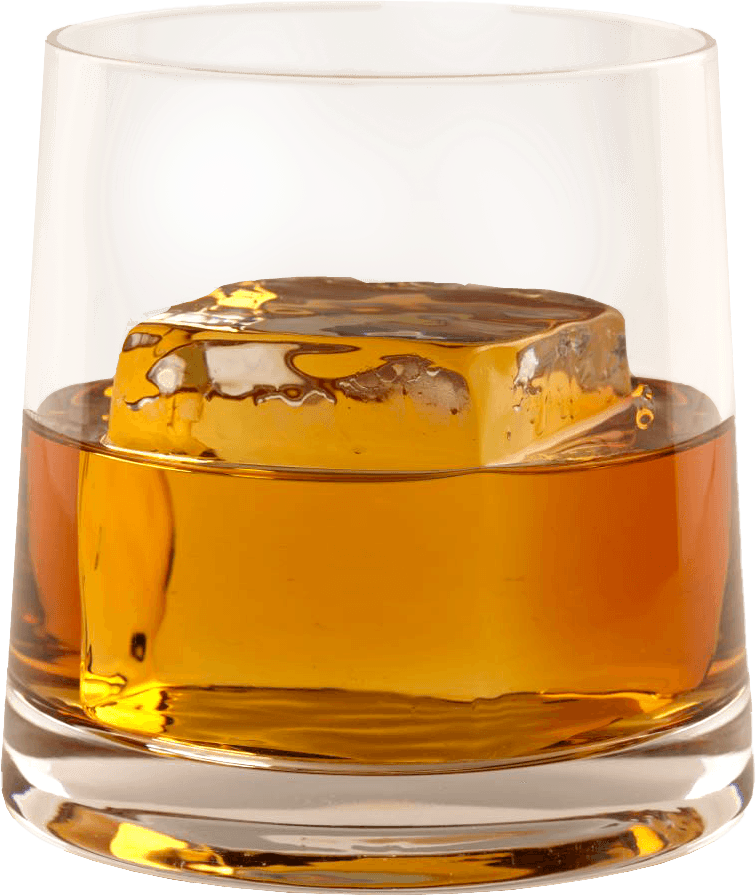
We use two unique grain recipes, one with 60% corn, and the other with 75% corn. They are both combined with limestone-rich water from the spring-fed Salt River in Lawrenceburg, KY, and cooked to perfection to protect the delicate flavors of each grain.
Corn
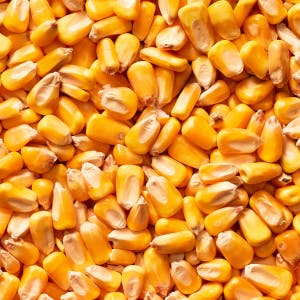
60%
Rye
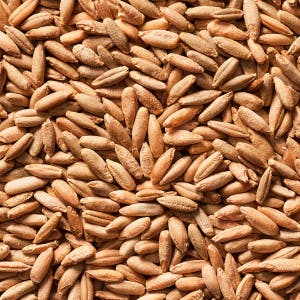
35%
Barley
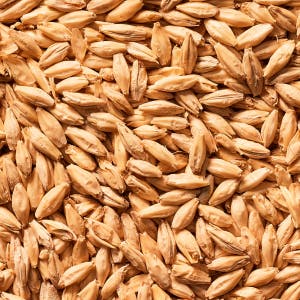
5%
Corn

75%
Rye

20%
Barley

5%
Delicate Fruit
Slight Spice
Rich Fruit
Floral Essence
Herbal Notes
Only Four Roses uses 5 original and proprietary yeast strains — each producing uniquely different, rich flavors. With the combination of 2 mash bills and 5 proprietary yeasts, ten uniquely different Bourbon recipes are made.
delicate fruit and rye
rye and baking spice
rich fruit
rye and light floral character
delicate rye and mint
delicate fruit and caramel
baking spice
rich fruit and vanilla
Delicate grains and floral character
light grain and mint
Each recipe name is composed of four letters identifying its production facility, mash bill, distillation process and yeast strain.

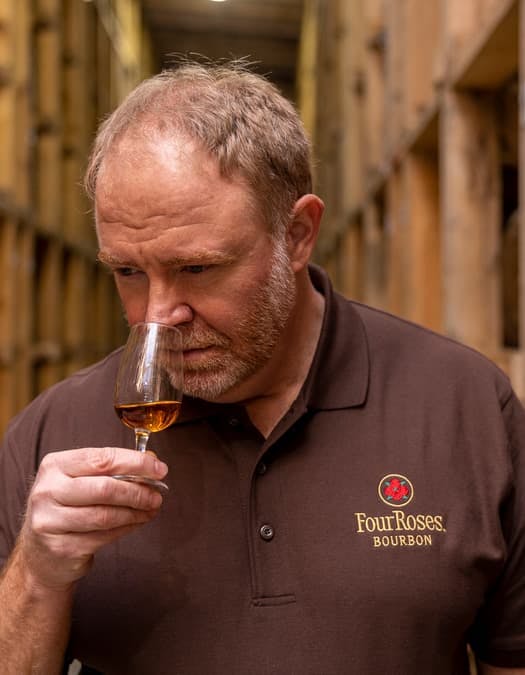
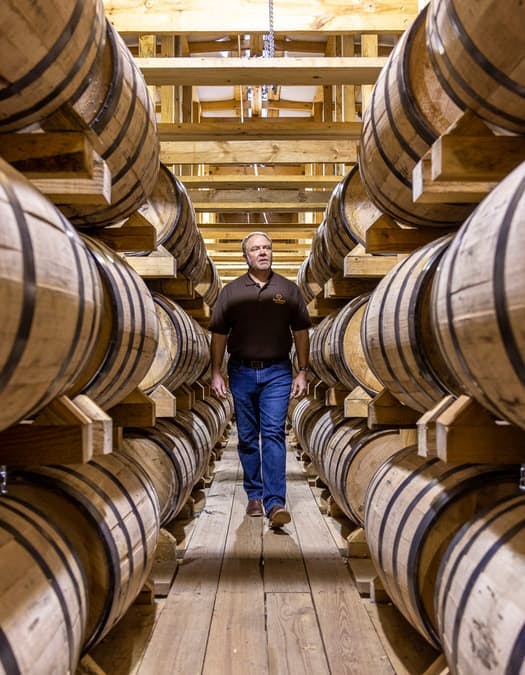
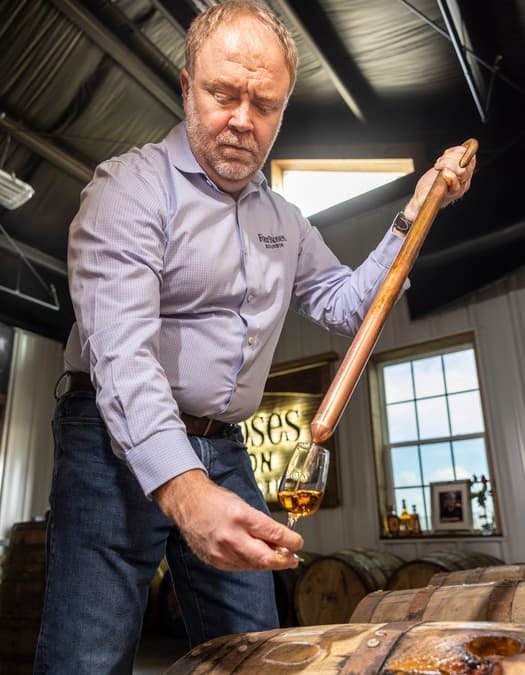
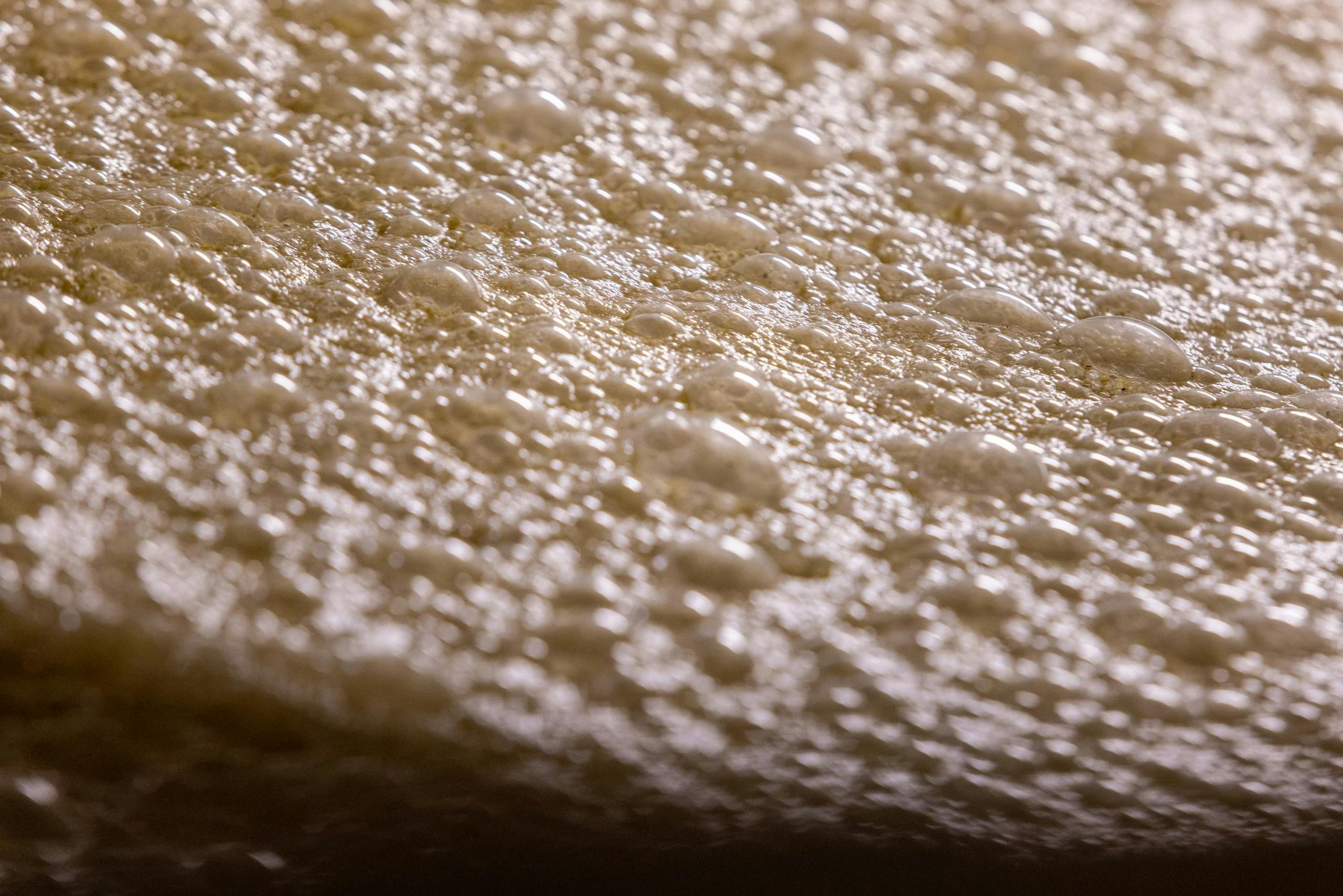
The process of making Bourbon begins with the mashing and subsequent fermentation of the grains. The mashing (or cooking) process begins by combining our high-quality corn with locally-sourced limestone-rich water at a certain temperature. After a set time, the temperature is lowered in steps to add the rye and malted barley.
It’s crucial we keep tight control over temperatures during this stage to maintain and ensure the desired grain flavors and the viability of the barley enzymes.
Once complete, the mash is cooled and pumped into one of our fermenters where we add yeast and allow it to feed on the sugars for at least three days, slowly lowering the sugar content and converting it into alcohol and flavor compounds. The result is a sour Distiller's Beer at about 8% alcohol.
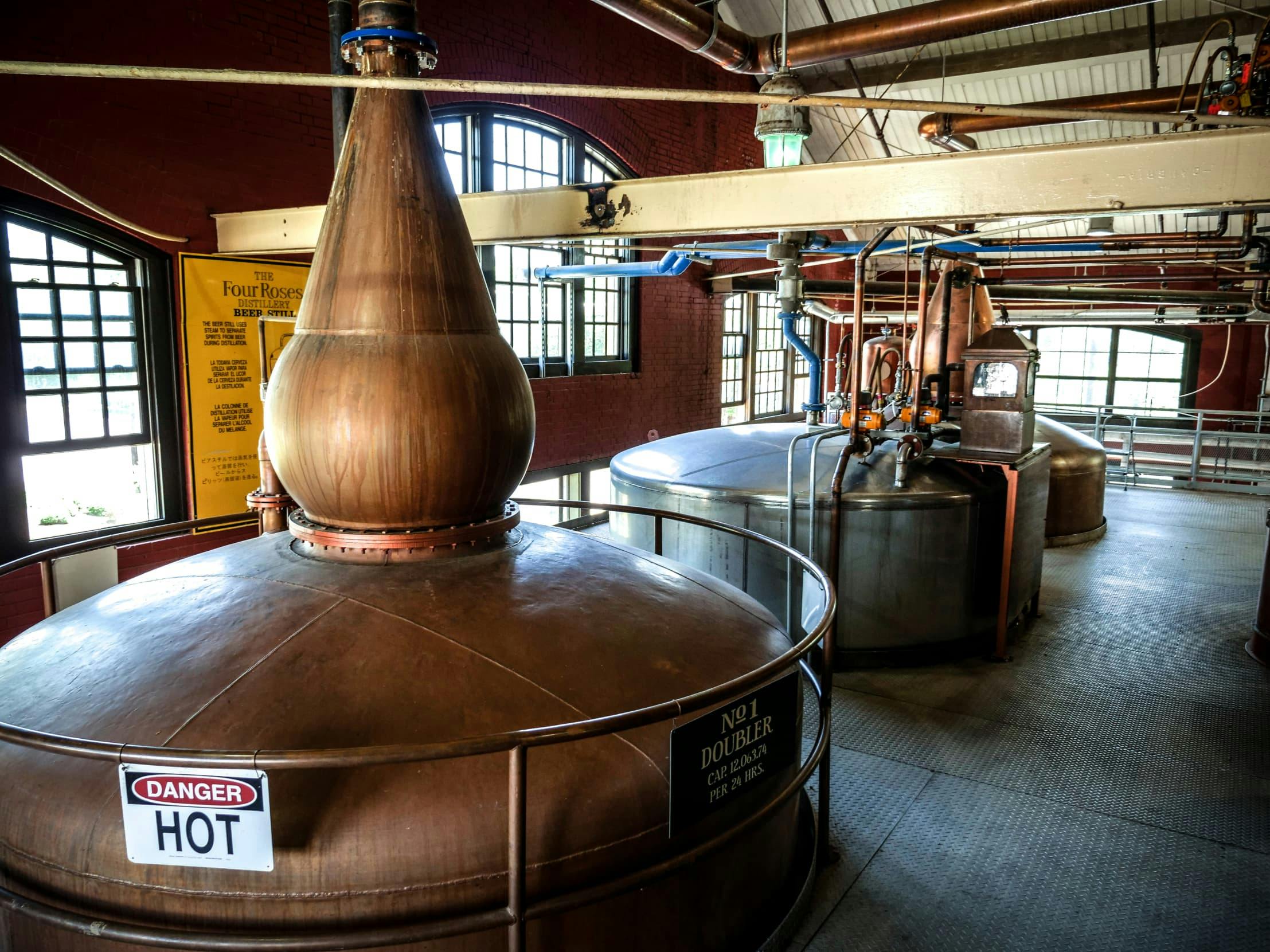
Distillation is the separation of liquids based on their differing boiling points.
Through our defined two-step distillation process of converting our Distiller's Beer into vapor, we selectively concentrate the desired flavors and alcohol into distillate or "white dog."
Tools for Excellence:
Column Still
This still is used for converting the Distiller's Beer liquid into vapors.
Once the Distiller’s beer has been fed into the top section of our Column Still, it travels down, meeting rising steam that is introduced at the bottom. The steam vaporizes the liquid components and raises them to the top of the Column Still, where they enter the condenser and are converted back into a liquid that is about 132 proof
This distillate is called White Dog and is relatively clean but contains small amounts of impurities that can affect the taste, so it is sent to the Doubler for a second distillation.
Doubler
The Doubler is a pot-shaped still where a second, gentler distillation removes any remaining impurities to provide a more pure, clean taste. The resulting condensed distillate comes out at about 138-140 proof.
Tankers
After the second distillation, the liquid is sent to distillate tanks to be checked for quality and consistency. Once approved, it is loaded onto tanker trucks and shipped to our Warehouse and Bottling Facility in Cox's Creek, KY.
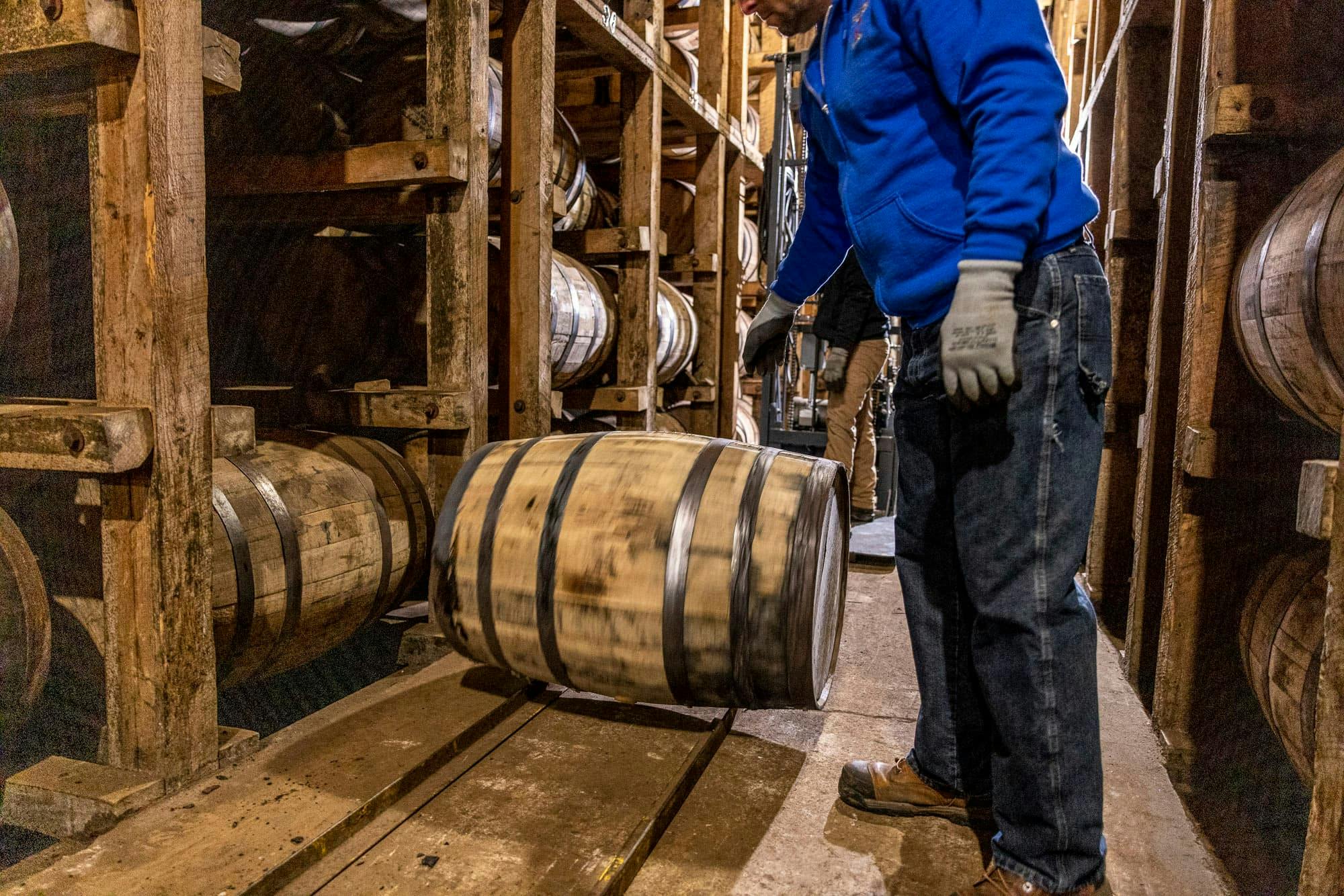
Four Roses is one of the only major distilleries using single-story rack warehouses to provide a gentle and consistent maturing environment during the aging process.
This ensures that our warehousing temperatures vary by only about 8 degrees Fahrenheit from the top rack to the bottom – whereas more traditional, multi-level warehouses can vary in temperature by as much as 30 degrees.
Storing & Aging Perfection:
Retention Tanks
Tanker trucks transport the liquid from the distillery and pump it into retention tanks where water is added to reduce the proof from around 138 - 140 to 120. Different proof levels influence the types of flavors pulled from the wood barrels, and we choose to barrel lower than the legal maximum of 125 proof to achieve our consistent and signature flavor profile.
Oak Barrels
We use charred, new American oak barrels per the requirements of straight bourbon whiskey, and each of our barrels holds 53 gallons of distillate. Once the barrels have been filled with proofed distillate, each one is stenciled on its head to identify the recipe and batch information and placed on the ricks in our warehouse.
Aging/Maturation
Each barrel ages on our ricks for a minimum of five years. During that time, the whiskey will round out as the charred barrels add oak, sweet vanilla, and toffee notes from the caramelized sugars produced during the charring process.
Each barrel ages differently and is not pulled and used until the desired taste profile is reached and deemed ready for its intended use.
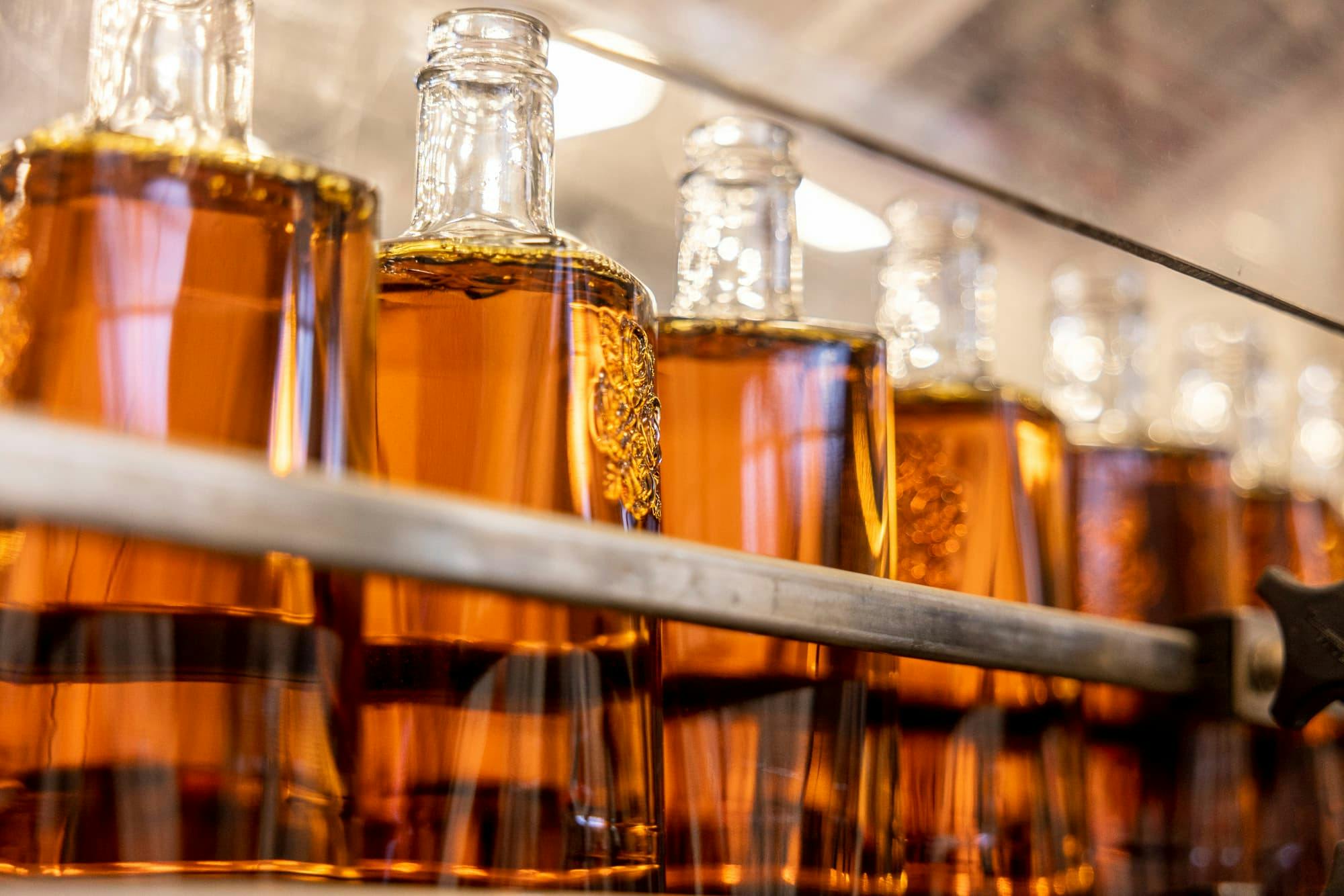
Once the barrel has been carefully aged to maturity, it is ready to be blended or bottled.
For our single-barrel bourbons, the hand-selected individual barrels are removed from the warehouse and sent into a stainless-steel trough to be proofed, tested, chill-filtered, and then sent straight to the bottling line.
For our other expertly-crafted variants, multiple selected barrels are dumped and blended together before going through the same proofing and bottling process to create our signature and consistent line of bourbons.

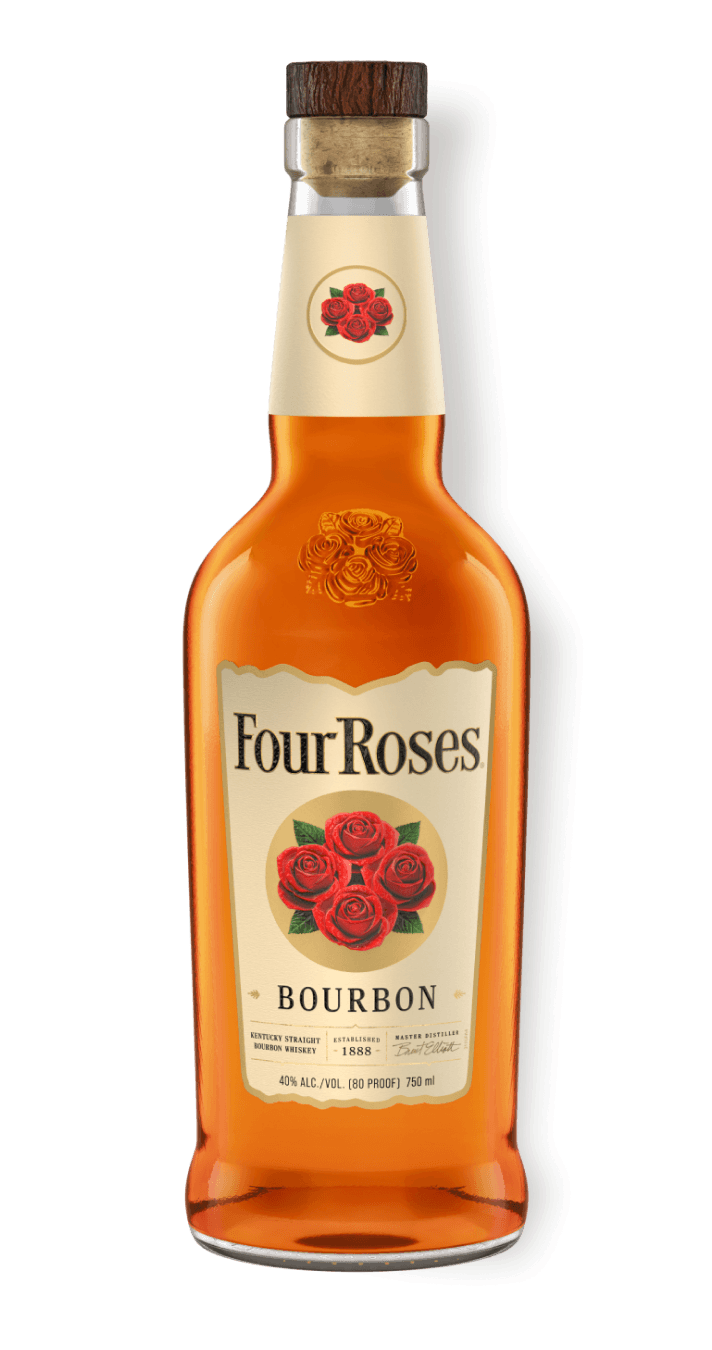
80 Proof / Aged Minimum 5 Years
An approachable bourbon for everyone.

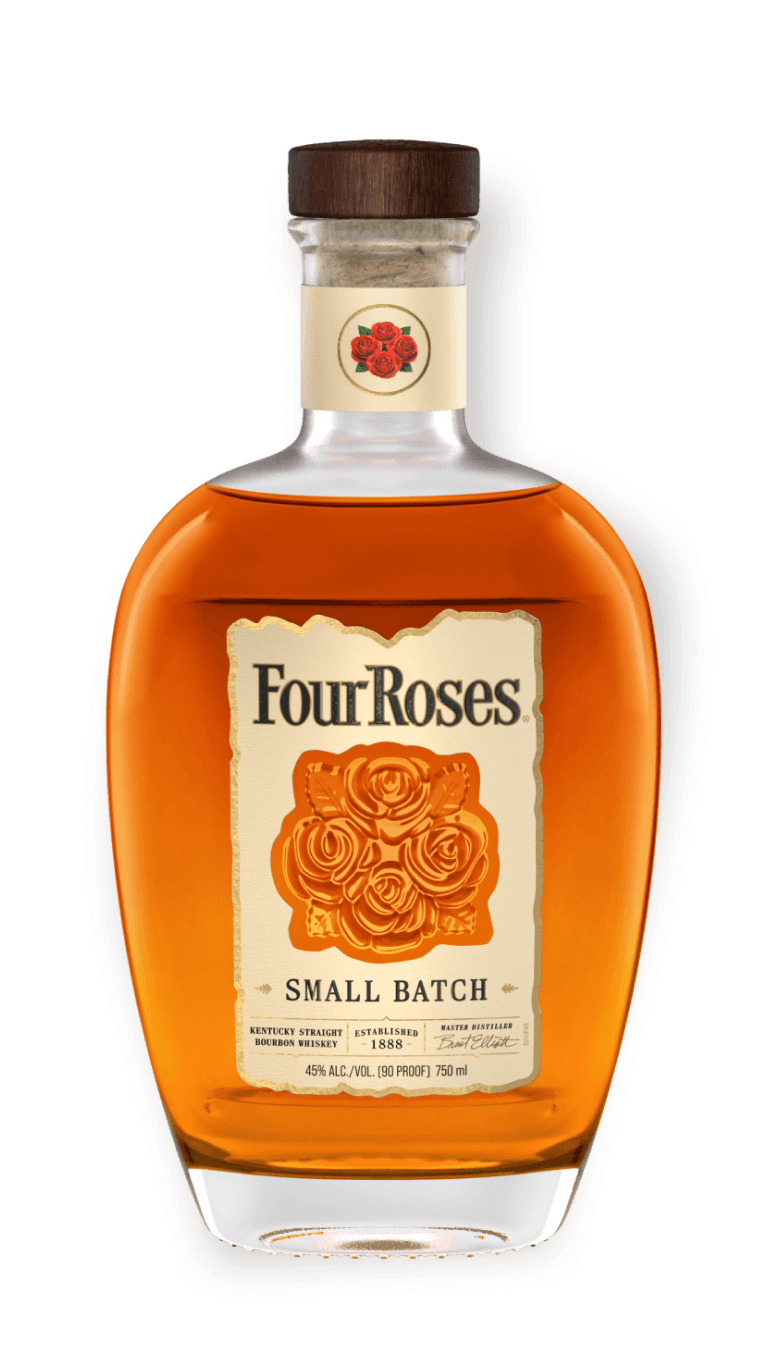
90 Proof / Aged 6 - 7 Years
A premium bourbon versatile for any occasion.

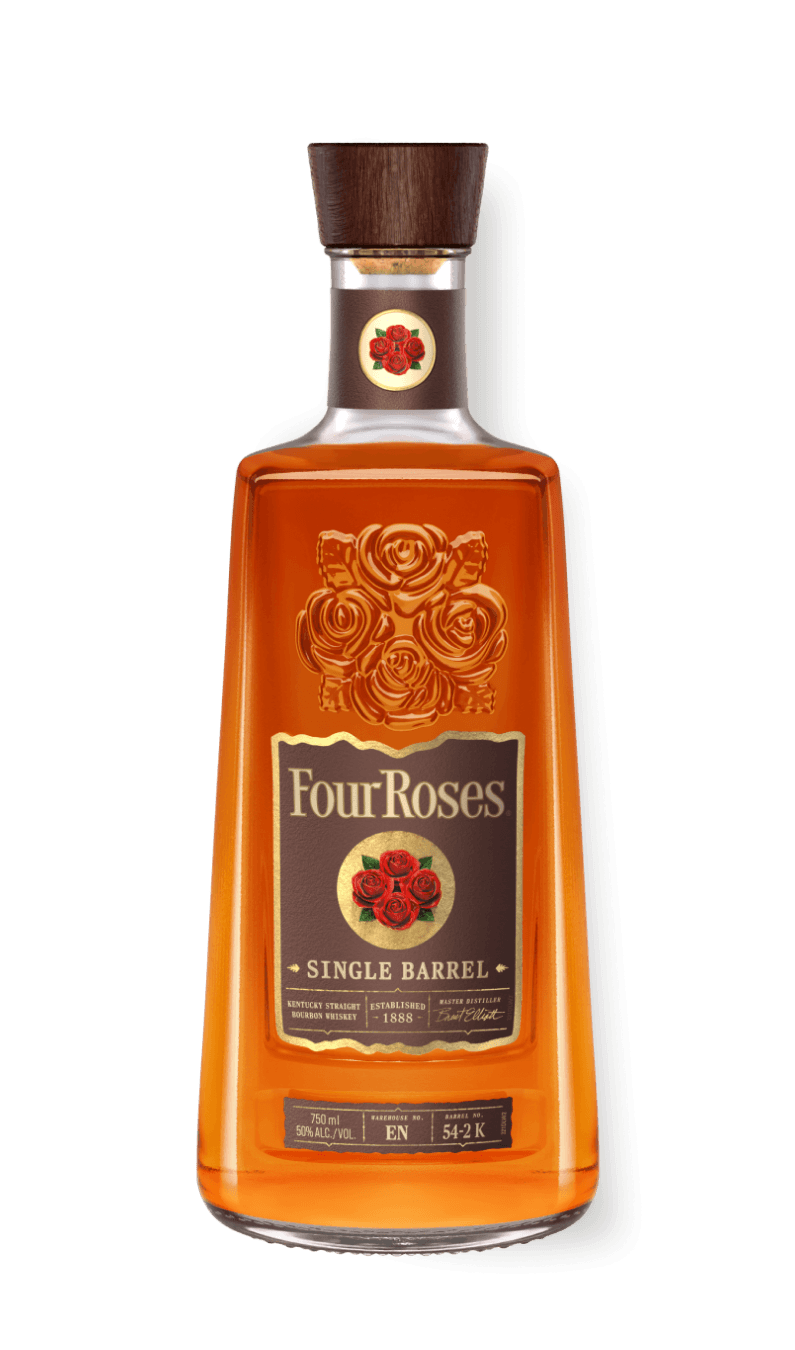
100 Proof / Aged 7 - 9 Years
A pronounced and elegant single-barrel bourbon experience.

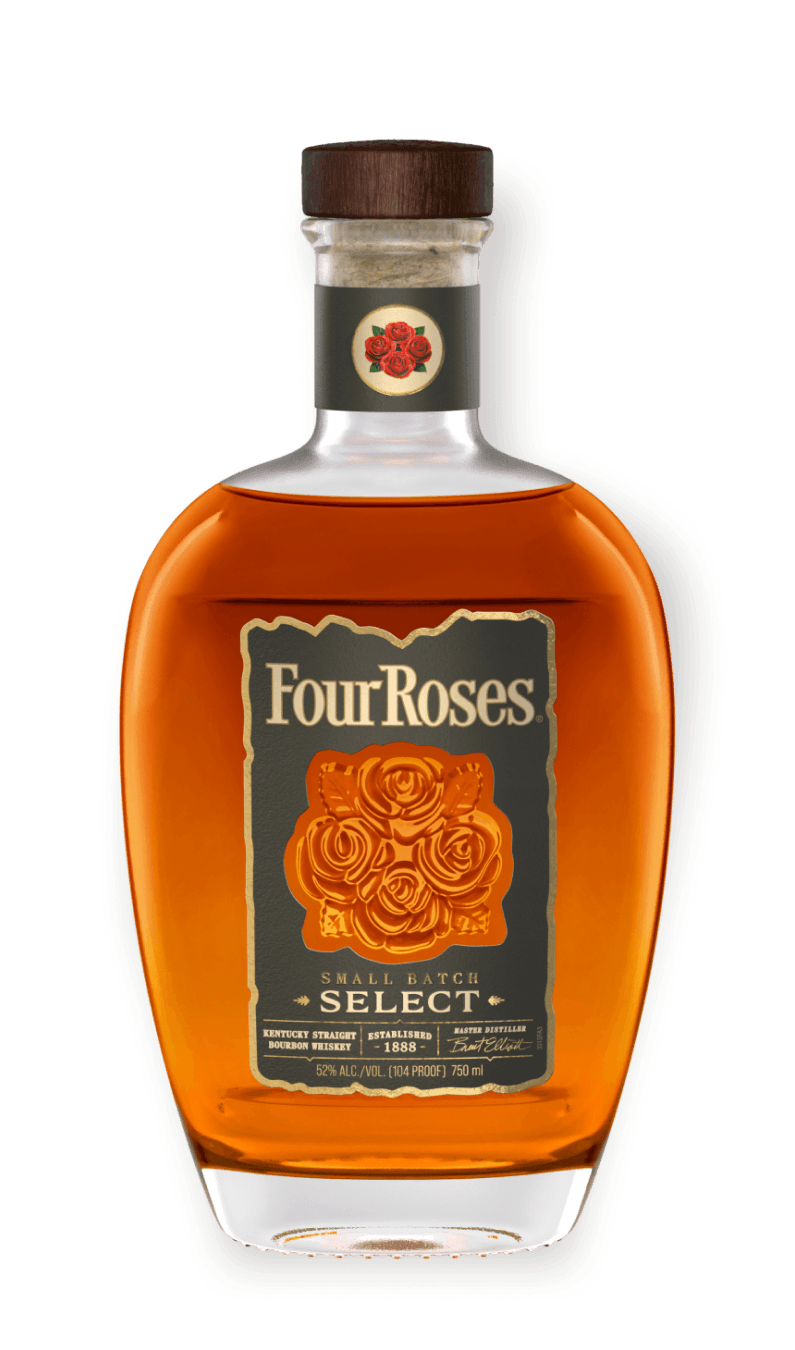
104 Proof / Aged 6 - 7 Years
An expertly-crafted, non-chill-filtered bourbon.
